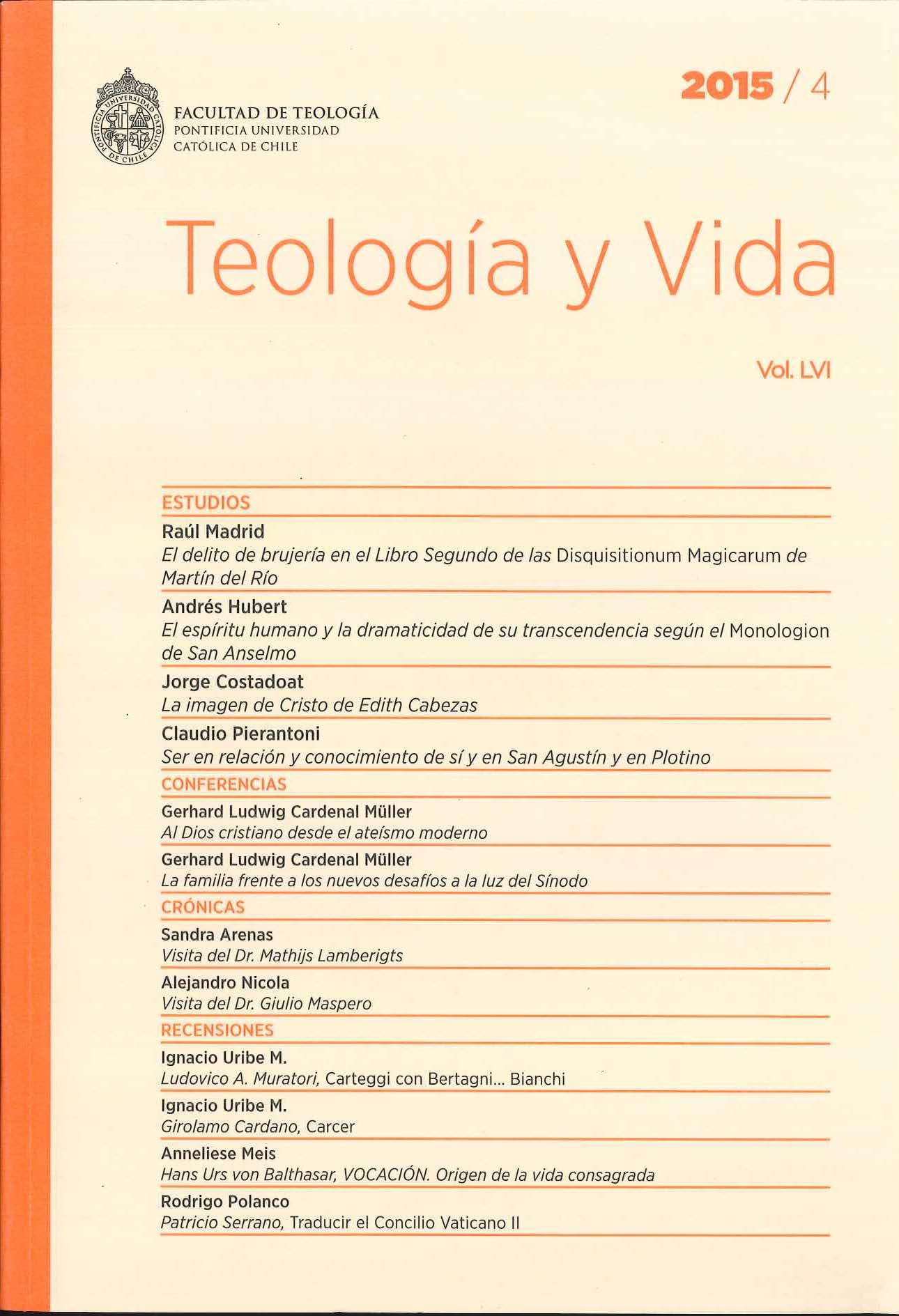El espíritu humano y la dramaticidad de su transcendencia según el Monologion de San Anselmo
Contenido principal del artículo
Resumen
Resumen: El ser humano está inmerso en el mundo. La grandeza del hombre está en su deseo de conocer y su drama en que no puede asomarse fuera del mundo para estudiarlo completamente y en que su deseo permanece, sin embargo, ilimitado. Anselmo de Canterbury es un hombre de su tiempo que, sin embargo, interpela a los hombres de hoy. Su pensamiento comienza con el deseo de gozar del bien, deseo inscrito en cada hombre. Este trabajo intenta profundizar la cuestión de la relación entre el espíritu finito y el infinito en el Monologion de Anselmo. Comienza con el estudio de la palabra ‘espiritu’ y le descubre un profundo sentido relacional. Luego profundiza en las nociones ‘imagen’ y ‘libertad’ importantes para cualquier ser relacional, sea Dios o el hombre. Y termina con el sentido y la importancia de la fe como última y más profunda relación.
Palabras clave: Anselmo, Monologion, trascendencia, libertad, imagen, fe.
Abstact: Human being is immersed in the world. This is it s greatness , it seeks to know the world and its drama: cannot move out of it to study it thoroughly. Anselm of Canterbury is a man of his time, nonetheless, meaningful today. His thought begins with the wish for good enkindled in every human being. This paper intends to deepen on the relation between the finite and the infinite spirit in Anselm’s Monologion . Starts with the analysis of the word ‘spirit’ to discover a deep relational sense of the word. Then looks on ‘image’ and ‘freedom’, important to every relational being, God or man. And ends with the meaning and importance of faith as last and deepest relation.
Keywords: Anselm, Monologion, transcendence, liberty, image, faith.
Detalles del artículo
Los autores de artículos aceptados en Teología y Vida conservan los derechos de propiedad intelectual sobre sus trabajos y otorgan a la revista los permisos de distribución y comunicación pública de los mismos, consintiendo que se publiquen bajo una licencia Creative Commons (BY-NC-ND) 4.0 Internacional, que se otorga por todo el plazo de protección de la obra y con un carácter no exclusivo. La única limitación para el autor es que sólo podrá otorgar licencias no exclusivas sobre su obra. Esta licencia no permite la generación de obras derivadas ni hacer un uso comercial de la obra original, es decir, sólo son posibles los usos y finalidad que no tengan carácter comercial.
Se recomienda a los autores publicar su trabajo en Internet (por ejemplo en páginas institucionales o personales, repositorios, etc.) respetando las condiciones de esta licencia y citando debidamente la fuente original.

